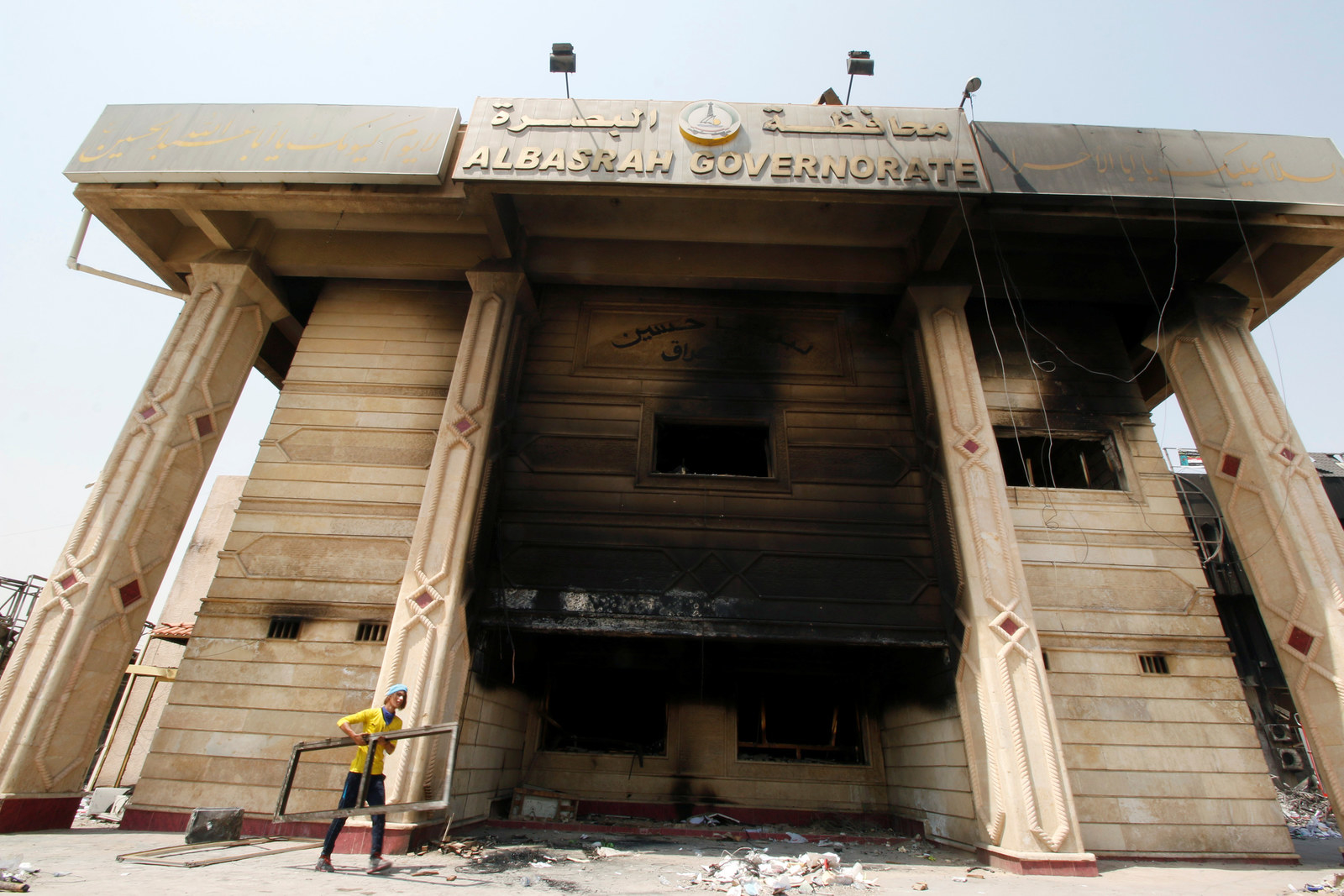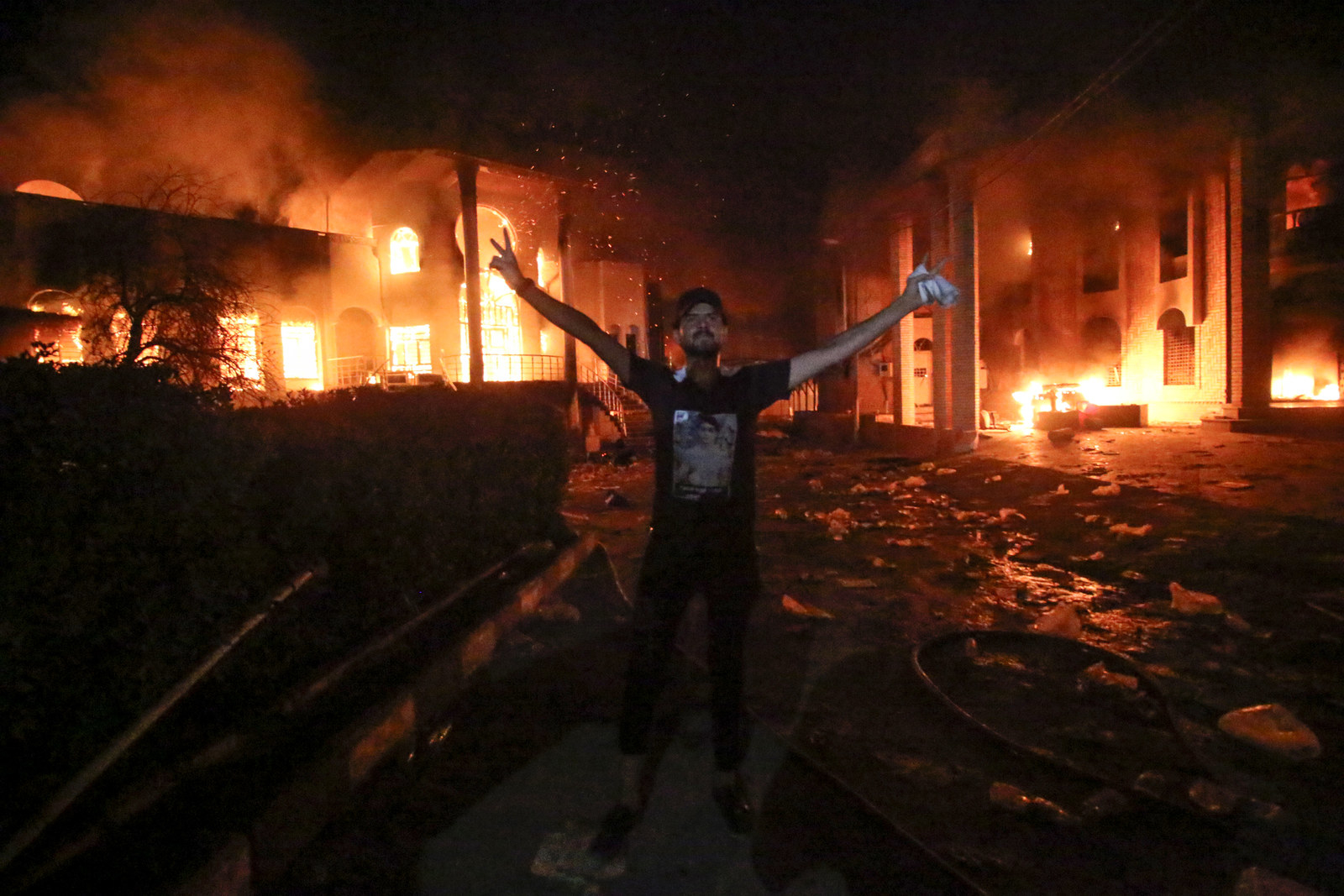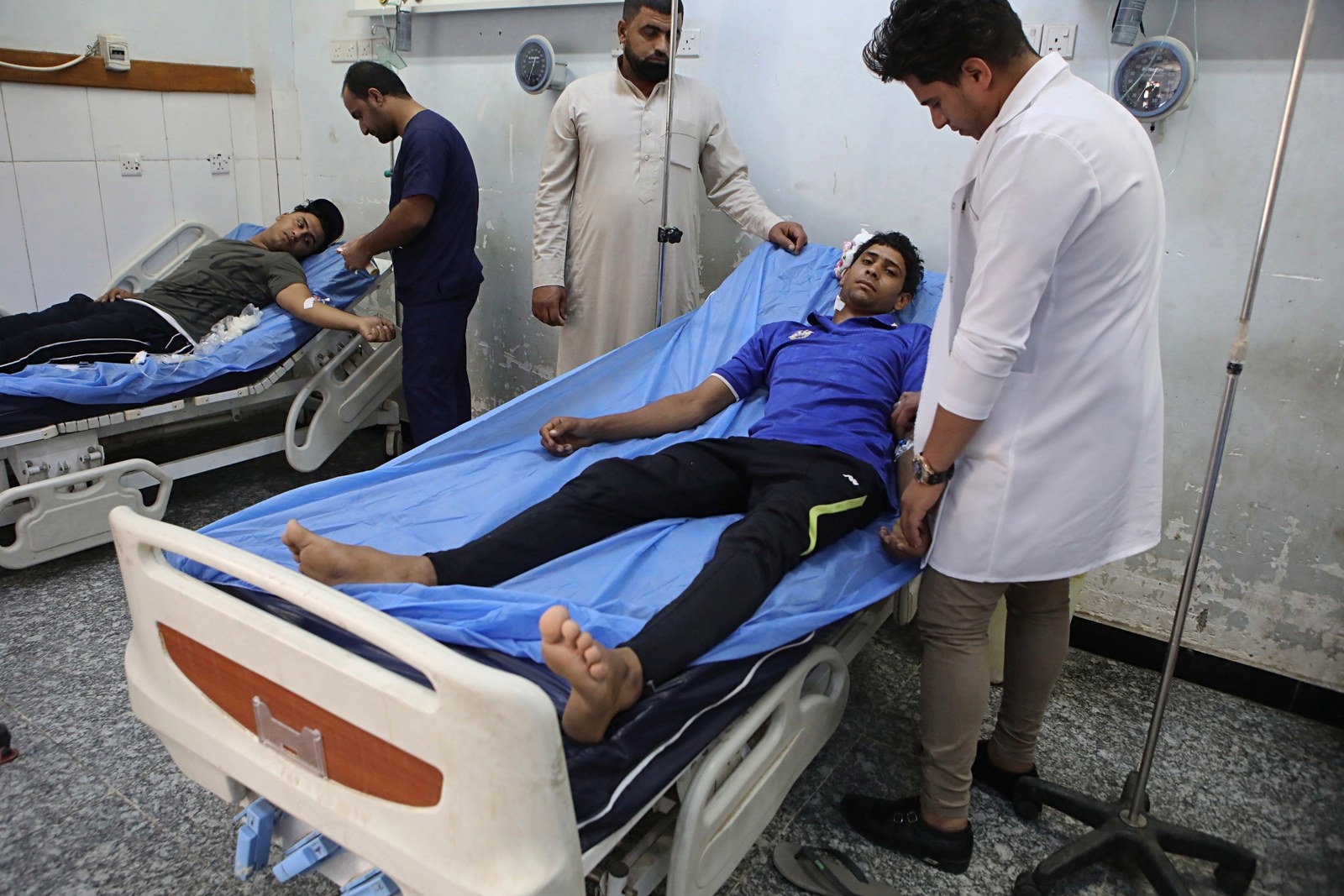This is the view inside the local government headquarters of Basra, a city in Iraq, after a week of violent protests that saw more than a dozen civilians killed and multiple buildings set ablaze.

Despite sitting on about 70% of Iraq’s oil reserves, Basra’s 4 million residents, like much of southeast Iraq, have found themselves feeling ignored by the government in Baghdad for years.

Unemployment hit 30% in the province earlier this summer, sparking a less destructive round of protests. Those demonstrations got the federal government to promise that 50% of all oil jobs in the area will be held for Iraqis, but it has done little in the short term to alleviate the issues Basra faces.
How bad had things gotten in Basra before the protests kicked off? In the face of temperatures that reached over 120 degrees, there have been electricity shortages throughout the province.

Even the Iraqis who pay for their own generators have been feeling the heat, while the majority have only gotten a few hours a day of electricity made available to them. And a good chunk of the “estimated $40 billion allocated to the power sector over the past 15 years has vanished,” prompting a level of disrepair that won’t easily be fixed.
But that’s not the only utility that’s been inaccessible to Basra’s residents — the city’s water has also been rendered undrinkable.
What locals in Basra had coming through their public water service this morning , Tanoma district, Basra, southern Iraq. One of the richest oil cities in the world lacks fresh water. https://t.co/xxApgoPP9f
The city is home to a series of freshwater canals that in years past meant potable water was easy to come across. Its current horrifying condition can be traced back to a combination of chemicals in the water filtering in from the city’s clogged and polluted freshwater canals and encroaching salt water from the Persian Gulf.
While the government and the pressing lack of services were the primary focus of the protesters’ ire, they weren’t the only targets during the week of discontent.

Iran, which has seen its influence on the rise in Iraq since Tehran’s extensive intervention in the war on ISIS, had its consulate in Basra put to the torch as well.

Also under fire: the Shiite militias — many of which are backed by Iran — that ostensibly provide security for the province.
The Basra headquarters for many of the militias also were burned down in the course of the week. Abu Yasser al-Jaafari, a spokesperson for an alliance of the militias, said Saturday that there will be a response “against those who are carrying out acts of arson and sabotage.”
Clashes between protesters on one side and the government’s forces and militias on the other have left at least 15 people dead and many more injured, according to the Health Ministry.

Iraqi Prime Minister Haider al-Abadi visited Basra on Monday, where met with local government and religious leaders.

Abadi has been struggling to hold on to power since parliamentary elections were held in May. No party managed to get a majority, leaving Abadi in control of a caretaker government while still angling to retain his position. And his trip wasn’t looked kindly on by the protesters, hundreds of whom gathered after a day of respite.
“This is a cheap visit,” Waleed al-Ansari, one of the protest organizers, told the Associated Press.
“They are making a mockery of the blood of our martyrs,” he said. “We want services.”
The situation on Monday was relatively calm during the prime minister’s visit. But the situation for Basra’s citizens remains exactly the same as it was before the government building was set on fire.

